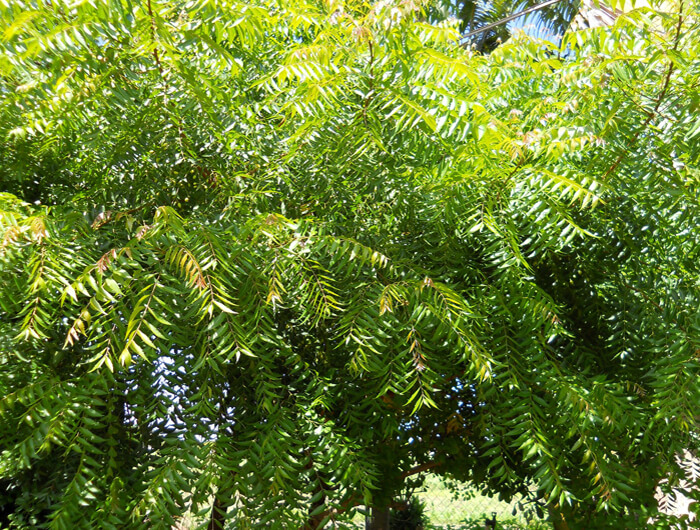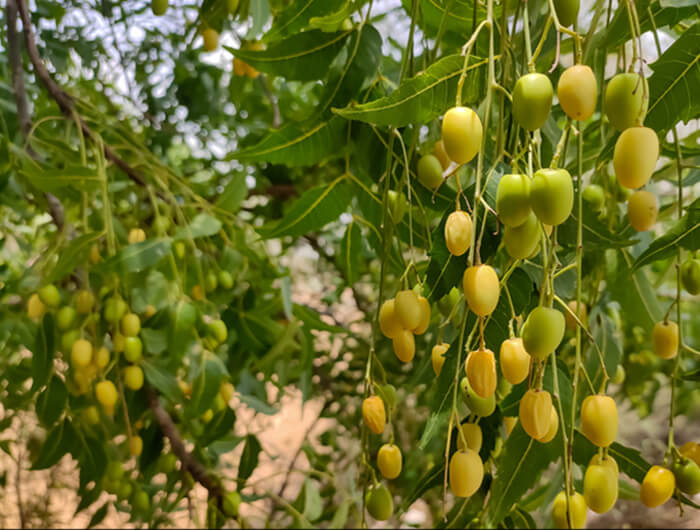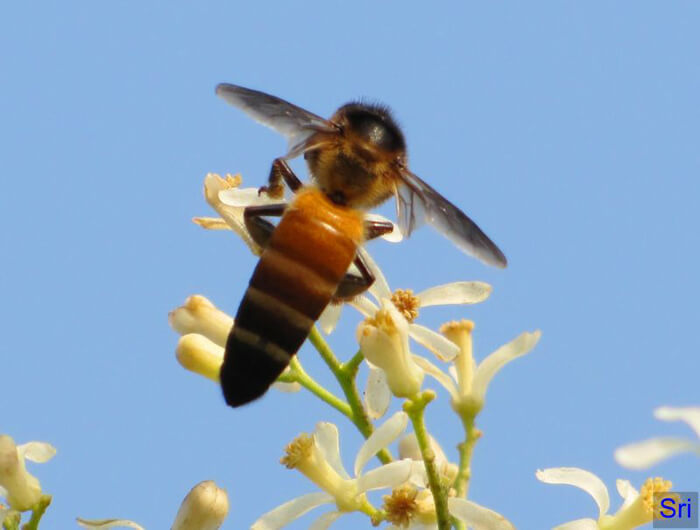Significance of Neem Tree in Hinduism

The neem tree is known for having a multitude of medicinal benefits and is also considered auspicious for the house in Vastu. Planting a neem tree in the house garden brings peace and harmony to the residents and removes all the negativities and bitterness in relationships.
Neem has more than 130 different biologically active compounds that have anti-bacterial and anti-viral properties. Neem is known to destroy the bacteria that cause infections, stimulate the immune system and encourage rapid healing. It is one of the most respected trees in Indian heritage.
The neem tree (azadirachta indica) features heavily in traditional Indian medicine known as Ayurveda. Neem is also called ‘ Arista ’ in Sanskrit- a word that means ‘perfect, complete and imperishable’. Known for its medicinal properties, it is used to treat skin and hair disorders. Many Indian households value having a neem tree in their garden because the seeds, leaves, flowers, fruits, oil, roots, and bark are good for a wide range of household uses.
Neem Tree

Neem tree is cultivated in the Indian subcontinent. This tree belongs to the mahogany family, Meliaceae. Its botanic name is Azadirachta indica. In Sanskrit, it is known as Nimba which means bestower of health. Also known as Veppa or Nimba in vernacular languages. It is called the margosa tree.
This tree is extensively used in Ayurvedic medicines and remedies for thousands of years. It is used me making anti-bacterial, anti-fungal, and anti-viral. In Hindu culture, it is believed that Goddess Sitala Devi exists in this tree. South Indians believe that Goddess Marimman is associated with this tree. This Goddess is responsible for giving and healing skin ailments like small-pox
Neem in Hindu Mythology

Plants play a key role in Hindu mythology. Natural entities such as rivers, trees, and mountains have long been worshiped in Hindu India as embodied forms of divinity. Trees have been given deep and sacred meanings; their birth, growth, and death, the elasticity of their branches, their sensitivity to annual decay, and their revival have all been interpreted as powerful symbols. Hindu mythology says that Amrit (Ambrosia) fell on the neem tree. Another myth is that the sun took refuge in it to escape the demons.
The neem tree besides having various medicinal benefits is a highly revered tree among the Hindus because it is a manifestation of “Goddess Durga” or “Maa Kali”. That is why the tree is sometimes referred to as Neemari Devi. In Bengal, neem is considered to be the tree that is the abode of “Sitala” (the great Pox-mother who can cause or cure disease). Its leaves are also widely used in the worship, puja, festivals, and rituals associated with Hindu Goddesses, especially in South India.
The popular belief is that Mother Goddess resides in the Neem tree and its leaves have the power to cure diseases and drive away all evils. The tree can be spotted in the vicinity of mane Shakti temples. It is believed that worshipping the Neem tree bestows Ayu (longevity), Shri (prosperity), Yasha (fame), and Viaya (victory).
Suggested Read: Advantages And The Importance Of Tulsi
How does Neem work

Neem contains chemicals that might help reduce blood sugar levels, heal ulcers in the digestive tract, prevent conception, kill bacteria, and prevent plaque formation in the mouth.

Dental plaque: Applying neem leaf extract gel to the teeth and gums twice daily for 6 weeks might reduce plaque formation. It also might reduce the number of bacteria in the mouth that can cause plaque. However, using a mouth rinse containing neem extract for 2 weeks does not appear to reduce plaque or gingivitis.

Insect repellant: Research suggests that applying an extract of neem root or leaf to the skin helps repels black flies. Also, applying neem oil cream to the skin seems to protect against some types of mosquitos.
Ulcers: Some research suggests that taking 30-60 mg of neem bark extract twice daily by mouth for 10 weeks helps heal stomach and intestinal ulcers.

Psoriasis: It is suggested that taking neem extract by mouth for 12 weeks, along with daily sun exposure and the application of a coal tar and salicylic acid cream, reduces the severity of psoriasis symptoms in people.
The appropriate use of neem depends on several factors such as the user’s age, health, and several other conditions. At this time there is not enough scientific information to determine an appropriate range of doses for neem. Keep in mind that natural products are not always necessarily safe and dosages can be important. Be sure to follow relevant directions on product labels and consult your pharmacist or physician or other healthcare professionals before using.
Suggested Read: Turmeric Health Benefits
